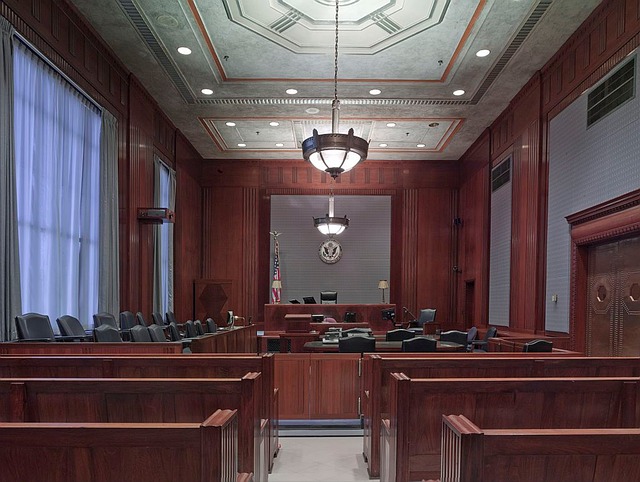Whistleblower Protection Laws safeguard individuals who expose illegal or unethical activities, especially in securities compliance failures. These laws offer safe harbor, prevent retaliation, and provide compensation, fostering accountability and deterring corporate misconduct. Securities compliance is critical in protecting whistleblowers from legal consequences like indictment and reputational damage caused by non-compliance, which can severely penalize companies and deter future disclosures. To mitigate risks, businesses should strengthen internal controls, empower employees through training, establish transparent reporting mechanisms, and cultivate an ethical culture to avoid whistleblower protection lawsuits and their Legal Implications of Securities Compliance Failures.
“Uncovering wrongdoings within an organization has never been more crucial, especially with the rise in complex financial markets. This article delves into the intricate world of whistleblower protection lawsuits and their legal implications on businesses. We explore the legal framework surrounding these protections, focusing on securities compliance as a key defense mechanism. Understanding common failures in compliance procedures is essential to avoid costly lawsuits. Additionally, we provide strategic insights for businesses to navigate these legal intricacies effectively.”
- Understanding Whistleblower Protection Laws: A Legal Framework
- The Role of Securities Compliance in Protecting Whistleblowers
- Common Failures in Securities Compliance Leading to Lawsuits
- Strategies for Businesses to Avoid Whistleblower Protection Lawsuits
Understanding Whistleblower Protection Laws: A Legal Framework

Whistleblower Protection Laws are a crucial legal framework designed to safeguard individuals who expose illegal or unethical activities within organizations, particularly in cases involving securities compliance failures. These laws have far-reaching implications, not just for whistleblowers but also for companies and their leadership. By providing a legal safe harbor for those who come forward with valuable information, these regulations encourage accountability and deter corporate misconduct.
The legal landscape surrounding whistleblower protection has evolved over time, with many states and the federal government enacting comprehensive statutes. These laws offer various protections, such as preventing retaliation, ensuring anonymous tips where possible, and providing a mechanism for whistleblowers to seek compensation. For instance, in cases of significant securities compliance failures, whistleblowers may be eligible for substantial rewards, achieving extraordinary results across the country for his clients.
The Role of Securities Compliance in Protecting Whistleblowers

The role of securities compliance is vital in protecting whistleblowers who expose corporate wrongdoing. When companies adhere to strict compliance standards, they create a robust framework that discourages unethical practices and acts as a shield for employees who choose to come forward. In the event of non-compliance or failure to enforce these regulations, legal implications can arise, putting both the organization and its whistleblowers at risk.
Securities compliance failures can lead to severe consequences, including general criminal defense issues. If a company is found negligent in its compliance efforts, it may face indictment, which could, in turn, deter potential whistleblowers from coming forward for fear of personal repercussions. Moreover, these failures can impact the company’s standing within philanthropic and political communities, where transparency and accountability are highly valued. Avoiding indictment and maintaining the trust of these stakeholders is crucial to fostering a culture of ethical reporting and protecting those who play a vital role in uncovering corporate misconduct.
Common Failures in Securities Compliance Leading to Lawsuits

Common Failures in Securities Compliance Leading to Lawsuits
Whistleblower protection lawsuits often arise from significant failures in securities compliance. These include misstatements or omissions in financial disclosures, failure to maintain adequate internal controls, and non-compliance with regulatory requirements such as those set by the SEC. Companies and individuals who fail to uphold these standards risk legal implications that can be severe, leading to substantial monetary fines, reputational damage, and even criminal charges.
One of the primary concerns for companies is avoiding indictment, especially in cases where fraudulent activities are involved. An unprecedented track record of compliance failures across respective businesses has resulted in heightened scrutiny from regulatory bodies. To mitigate these risks, organizations must implement robust internal controls, ensure accurate financial reporting, and foster a culture that encourages ethical practices and employee whistleblowing without fear of retaliation.
Strategies for Businesses to Avoid Whistleblower Protection Lawsuits

To avoid whistleblower protection lawsuits, businesses should prioritize robust internal controls and comprehensive employee training on compliance regulations, especially those related to securities. By establishing clear reporting channels and fostering an ethical culture that encourages open dialogue, companies can effectively prevent potential legal issues stemming from securities compliance failures.
Additionally, regular audits and meticulous documentation are crucial. Businesses must meticulously document their efforts to comply with legal requirements, demonstrating due diligence in the event of any investigations. This proactive approach, coupled with a strong white-collar defense strategy tailored to serve both corporate and individual clients, can significantly mitigate the legal implications of securities compliance failures across the country.
Whistleblower protection lawsuits are a significant legal outcome of securities compliance failures, with substantial financial and reputational consequences. By understanding the legal framework, recognizing common pitfalls in compliance, and implementing proactive strategies, businesses can mitigate these risks. Ensuring robust internal controls, promoting ethical cultures, and effectively addressing concerns can prevent whistleblowing incidents and their associated legal implications. This approach not only protects individuals who bring issues to light but also fosters a culture of transparency and accountability within organizations.






